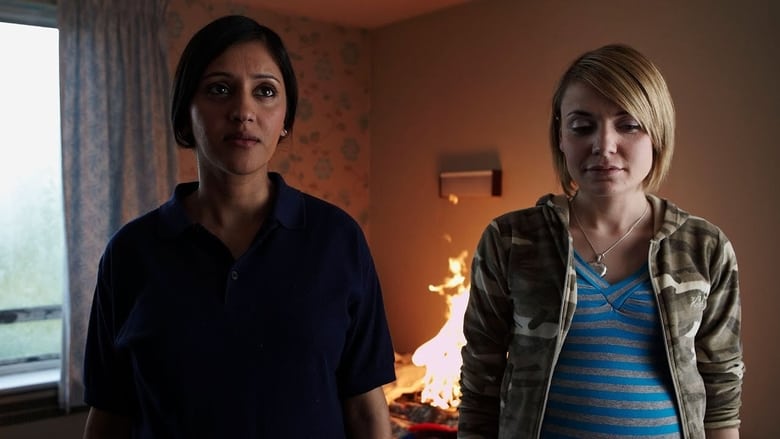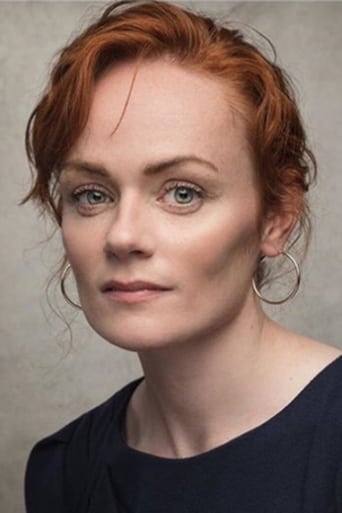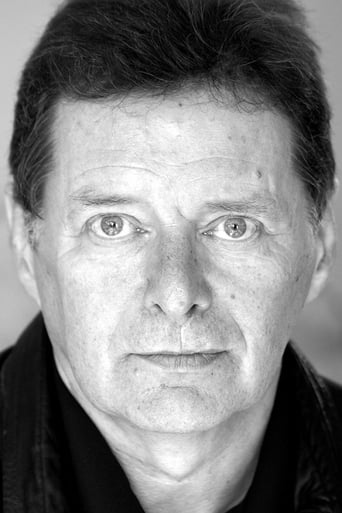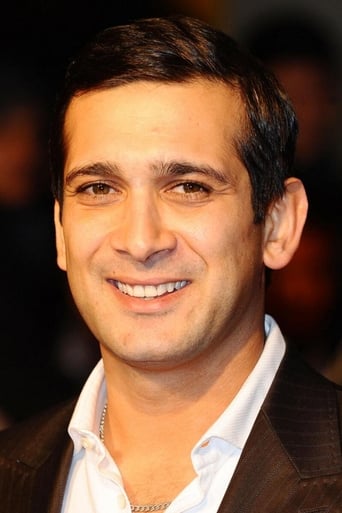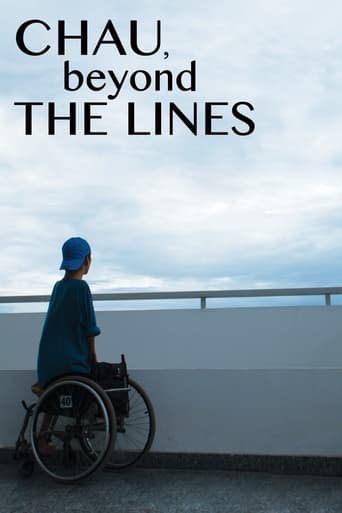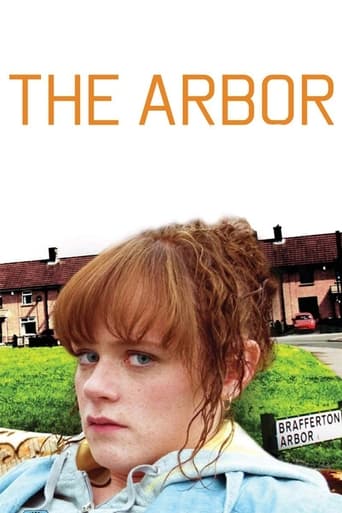
The lives of the late Bradford playwright Andrea Dunbar and Lorraine, one of her daughters, and the community of Bradford, in the 30 years since the 18-year-old Andrea penned a play about growing up in the community titled "The Arbor".
Similar titles


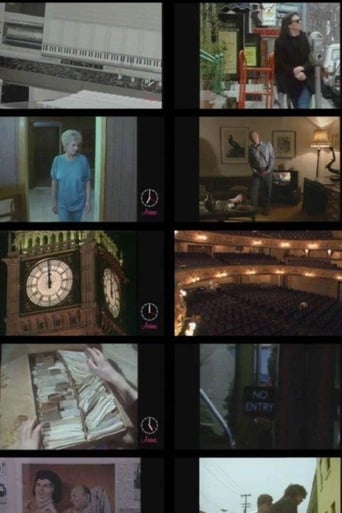
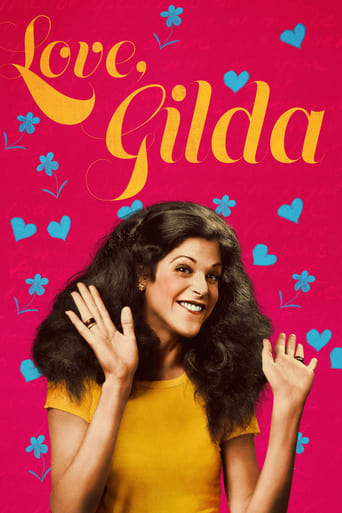
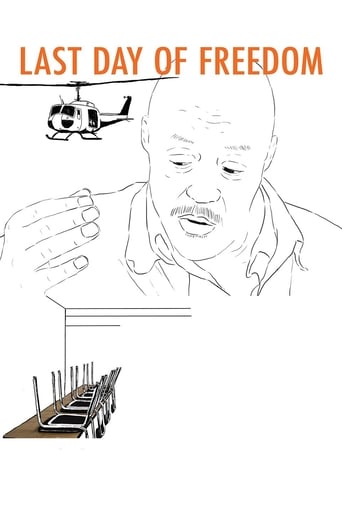
Reviews
Very Cool!!!
Surprisingly incoherent and boring
Although it has its amusing moments, in eneral the plot does not convince.
The movie's neither hopeful in contrived ways, nor hopeless in different contrived ways. Somehow it manages to be wonderful
I came to this film thinking that it was a documentary about the young writer Andrea Dunbar, who wrote the play (then film) Rita, Sue and Bob Too as well as a couple of other works before dying very young. I wasn't sure why I should be interested in her or her work but I had heard good things about the film (and had also seen Clio Barnard's previous short films) so I decided to give it a go. What I found was a film that wasn't really about Andrea Dunbar so much as it was the life of her mixed race daughter Lorraine.In telling this story the film not only tells us about Lorraine's life but also gives us the context by filling in who her mother was (mainly from old BBC documentaries that Lorraine watches) but also shows us what the estate is like by enacting parts of her play on the estate. It is a very creative approach and the blend of documentary and drama compliments each other since the original play was so real as to be a documentary and the real story of their lives is so engaging that it could have been a scripted drama. The film captures this really well and the various sections and threads just fit perfectly together – you are being told about different people in different ways but it never feels like anything other than one story.I didn't know any of this story so for me it really did impact to hear about the damaged lives coming out of this world (a world shown to us through the play). Assuming others do not know either, I will say no more on the content but it is brutal and saddening but rewarding thanks to how it is told. Much like her short films, Barnard approaches this as a documentary of real people telling stories but where in her shorts I think she hurt the films by having overly distracting images and cutaways as part of her design, here her visual content does nothing but add to the telling. Her "visuals" are actors lip-synching with the recorded word of the real people. The word "lip-synching" has negative connotations – it means pretending, faking it etc in regards music but here it is a great device. The actors not only hit their marks in regards the words, but they do so in a way where they make the words come alive. Virk is tragically brilliant and makes her character sympathetic without making excuses for her; she holds the attention and brings so much out in face and body. Gavin is great as the "girl" in the play – it is her role to help us understand the Dunbar not shown in the BBC interviews, and she does this really well. Down through the cast everyone delivers and they succeed despite the limits of not only the words they have to say, but the nuances and the timing of those words – the majority of the cast have little freedom to move but yet they deliver great performances.Barnard was showered with praise for this film and rightly so. It is engaging in its telling of this brutal and fascinating family story and it is done with creativity. The blend of documentary and drama is really well done whether it is in the grand scheme of things or even in the smaller detail such as setting the play sections on the estate with people watching in the background. It is not a cheerful film but yet it is a very good one and it is very much worth seeing. I've had issues with some of Barnard's work before, but with this I have almost no reservations about it.
The Arbor is a very interesting movie . Unique in the way it is filmed , with actors lip sinking the words of real people who are being interviewed about the life of playwright , Andrea Dunbar.The only work that i have seen of Andrea Dunbar is ' Rita , Sue and Bob too ' a bawdy drama from the 80's. I had no idea the writer if this film lead such a tragic life and that her children suffered so badly too.While i admire the way this film is made and the obvious skill of the actors and director , i'm still not sure this film totally works. I struggled at times to stay with this movie and i feel it would have benefited from being half an hour shorter.The Arbor is an experiment that has too much going on for my liking but well done to Clio Barnard for attempting such an ambitious project.
Location shots, real people, and actors are deployed in a seamless amalgam in this recollection of of the talented but short-lived alcoholic working-class playwright Andrea Dunbar, from Bradford, West Yorkshire. Filmmaker Clio Barnard first spent two years recording interviews with Dunbar's family and friends,. Then she staged actors lip-synching the interviews as monologues, sometimes in a group scene -- a technique known as "verbatim theater" that arguably works more seamlessly because of Bernard's use of filmed settings. Barnard also staged parts of one of Dunbar's plays out near "The Arbor," ther part of the Yorkshire housing estate where Dunbar grew up and of which her plays speak. This is also the name of Dunbar's first play. Another one, Rita, Sue and Bob Too, was made into a reportedly excellent film. After a while, thanks in part to the excellent editing of Ole Birekland, you don't know who's the real person and who's an actor (because vintage footage of the people is there too). This creates a kind of Brechtian "Alienation Effect" that paradoxically makes it all more real and memorable. In the course of compensating mentally for shifts of format and perspective, you wind up projecting yourself into Andrea Dunbar's world. It's a tough trip. Dunbar grew up in the Butterfield Estates during the decline of the textile mills, writing her first play at fifteen. She was already experiencing the prevailing racism, alcoholism and domestic violence. Eventually, by the time she died at 29 of a cerebral hemorrhage, she'd had become a heavy drinker and had three children by three different fathers. The eldest, Lorraine, played here by the sad- eyed, insinuating Manjinder Virk, was a dark-skinned, pretty girl whose dad was of Pakistani origin. She was to write no plays, but otherwise would duplicate her mother's unfortunate model of children by different fathers, drug addiction instead of alcoholism, and imprisonment for the causing the death of her child by extreme negligence. Editing is a key factor here, but all elements are so smoothly handled you become unaware of the many layers and modes at work. Over-titles identifying the main speakers when the first appear also help to create the desired confusion. In news footage where the family is interviewed after Andrea's first London success, her real dad bears a quite striking resemblance to the father in the staged play. At the play, many people, presumably current residents of the estates, stand around to watch -- another way boundaries are broken. Ronnie Schieb calls this "a must-see entry in the ongoing evolution of cinematic formalism," but this "formally inventive" and "socially revelatory" exploration, neither formal nor abstract in the playing out, never seems anything but real, down to the sometimes almost impenetrable accents of the recorded speakers whose voices flow through the scenes. Very good foreground and ambient sound contributes to the seamless effect, of course. Credit here to Dolby Digital sound designer Tim Barker and re-recording mixer Richard Davey.There is a Rashomon-like aspect as one gradually watches Andreas's story unfold from multiple sources, including the various fathers of her children, and the most personal moments come with Lorraine's unfolding confessions. As Peter Bradshaw of The Guardian wrote about the film last spring, Barnard's "technique produces a hyperreal intensification of the pain in Dunbar's work and in her life," and this pain becomes most vivid as we realize that in Lorraine's life Andrea's tragedy "was replicated, almost genetically." Bradshaw makes another good point: Dunbar's story, and her success as a teenage playwright in Max Stafford-Clark's Royal Court, challenges a lot of what we assume about gritty realist theatre or literature from the tough north," because the plays are usually produced "by men whose gender privileges are reinforced by university." They become stories of how they got out. But Dunbar never got out. The Arbor, Barnard's debut feature, got a raft of nominations at BAFTA and the London Critics Circle, and two actual awards, one at Sheffield's documentary festival (Innovation Award) and the British Independent Film award for Best Achievement in Production. It's not a cheerful watch, but it's a very compelling one and a remarkable accomplishment by Clio Bernard -- as well as by the principal actors, Manjinder Virk, Christine Bottomley, Neil Dudgeon, Monica Dolan, Danny Webb, Kathryn Pogson, Natalie Gavin, Jonathan Haynes, Jimi Mistry, George Costigan. Try as you may, you will not spot their lips out of sync.The 94-minute The Arbor won Barnard a best new documentary filmmaker prize at 2010's year's Tribeca Film Festival. It will get a theatrical U.S. release by Strand in April 2011. Seen and reviewed as part of the San Francisco International Film Festival, April 2011.
If you've seen Alan Clarke's wonderful 'Rita, Sue and Bob Too!' (UK 1986), you'll have some idea of what to expect from 'The Arbor'. "The Arbor" is a small part of the Buttershaw Estate in South Bradford where Clarke's film was set. Clarke's film was adapted from her own play by Andrea Dunbar, a 20 year-old single mother in 1982 when the play first appeared. She had written her first play also called 'The Arbour' when she was still at school and a third, 'Shirley', in 1986 before she died suddenly from a brain haemorrhage aged just 29.Knowledge of 'Rita, Sue and Bob Too!' will only help a little, however. This film, 'The Arbour', is part inspired by but is not an adaptation of Dunbar's play. Instead it is a form of documentary about Dunbar and her personal legacy that turns out to be mainly about the equally difficult life of her first child, Lorraine.The film is written and directed by Clio Barnard who has Bradford connections. She visited the Buttershaw estate in 2009 and interviewed members of the extended Dunbar family and some other residents. She then borrowed the idea of hiring actors to lip-synch the recorded interviews (in A State Affair, a play by Robin Soans about the Buttershaw estate, actors spoke the words of the people Dunbar knew). Scenes with the actors were shot on the estate and in a London studio. They were edited together with two other kinds of material – scenes from 'Rita, Sue . . .' and from arts and news programmes about Andrea Dunbar plus scenes from 'The Arbor' play, acted out on the 'green' on the estate.So, what does it all mean? I'm honestly not sure. Technically it is very well put together. I found myself moved by several scenes. At other times I felt like I didn't want to watch. I think that my personal preference is for a social-realist drama, but I recognise that the approach here is very powerful. My only real problem was in the casting of George Costigan as one of the actors reading the words of one of the fathers of Andrea Dunbar's children. Costigan was 'Bob' in Rita, Sue . . . and I found this an intertextual step too far.Clio Barnard has, I think, previously produced video installations and sometimes I felt that I was viewing an installation. I found the initial stages confusing as they moved backwards and forwards in time, but eventually the film developed a distinctive narrative line focusing on Lorraine and this made it more like a traditional documentary film.The Arbor appears to be attracting audiences to the National Media Museum's cinemas. Bradford audiences will probably have a rather different take on the film than the London critics who celebrated its success in winning two prizes at the London Film Festival this week.
Top Streaming Movies











